Yeh Teri Saadgi, Yeh Tera Baankpan: Usha Khanna
When Usha Khanna made her entry into the film music field as a teenager-composer with S. Mukerji’s Dil Deke Dekho (1959) full 33 years ago, the field was a male domain into which she seemed to have strayed. Nobody took this girl seriously, dismissing her as nothing but an O.P. Nayyar imitator and a flash in the pan. But Usha Khanna has had the last laugh, asserting her talent through sheer staying power for over three decades. She held her own against all comers, carving out a special slot for herself by proving that she is as good as any male music director creatively as well as commercially. Not even a failed marriage with Saawan Kumar Tak affected her equilibrium or output. Usha, in fact, has displayed her resilience of mind and spirit by holding on to compose consistently successful for the Saawan Kumar banner having just came up with a winning score in Bewafa Se Wafa (1992).
For all her seniority, this lady composer is a wonderfully balanced person who is remarkably hassle-free in her approach to life and her work. If I had gone to interview her with some hesitancy, I came away, impressed by her transparent sincerity and honesty of purpose in a field infamous for the larger than life egos. Usha Khanna is simplicity personified in her talk and persona alike.
We began at the beginning with her maiden film, Dil Deke Dekho, scored under her mentor banner – Filmalaya. Usha Khanna was S. Mukerji’s find and the songs she composed for Dil Deke Dekho came to be on the lips of every person young at heart, songs like Hum aur tum aur yeh samaan kya nasha nasha sa hai (Rafi), Pyar ki qasam hai na dekh aise pyar se (Asha-Rafi), Yaar chulbula hai hassen dilruba hai (Rafi), Bade hain dil ke kale (Asha-Rafi), Bolo bolo kuch to bolo (Rafi), not to mention the title song: Dil deke dekho dil deke dekho (Rafi). To quote Usha Khanna on how it all came to pass: “I remember how I had gone to S. Mukerji seeking an opportunity to be a playback singer. He asked me to sing something to gauge my potential. I sang one of my own compositions. He asked whose tune it was and I said it was my own. I was just 16 at the time. S. Mukerji told me frankly, ‘Look, Usha, can you really claim to sing better than either Lata or Asha? Or, for that matter any of the famous female singers? You have to admit that you can’t. But don’t lose heart, I want you to try your hand at composing. I feel you have a flair for it.”
“Then,” says Usha Khanna, “S Mukerji explained to me his idea of how I should go about the job. ‘What I want you to do.’ He said, is to compose, for a full year, at least four tunes a day, for me to hear. You may have a flair for composing, but you still have some way to go, so work the way I have noted for a year”
“And would you believe that is exactly what I did!” went on Usha. “S. Mukerji listened to at least four fresh tunes from me each day for one whole year before he gave me that break in Dil Deke Dekho, I could see the way my composing technique getting honed in that one year in which I had to slog to come up with four different tunes each day to keep the Filmalaya chief pleased. I don’t think any other method could have better trained me for a career as a composer.”
How did Usha Khanna react to the two accusations hurled at her in the wake of her maiden movie release – to saying that she had either just picked up the O.P. Nayyar ‘leftovers’ with S. Mukerji, or her father must have helped her fashion the Dil Deke Dekho tunes – for a girl’s name as a composer was unheard of those days, while her father’s musical background was a byword.
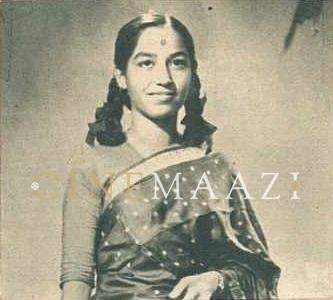
Usha laughed outright at the bitter-sweet memory. “What a torturous time I went through those days. I remember how, during the intermission at the premiere of Dil Deke Dekho I had gone into the foyer. There I heard two people commenting that the music of the film was mere hogwash and I was useless as a composer. I was so raw I sat down right there in the theatre cafeteria and cried in full public view. It was S. Mukerji who came up to console me.
“As for my father, Manmohan Khanna, having done the Dil Deke Dekho tunes for me, he is a poet and a ‘visharad’ in music, but these were teenage tunes. True, there was an atmosphere of music at home, but I had never sat down to learn music or been an assistant to anyone.
“It took a long time for this rumor – that I was only a front for someone to die down. My second film for Filmalaya and S. Mukerji, Hum Hindustani (1960), gave me a renewed opportunity to show that the music I composed was my very own. You will agree that Hum Hindustani saw me come up with a score that was distinctly different from the one I had done for Dil Deke Dekho. Just recall how aptly my Hum Hindustani tunes like Raat nikhri huwi zulf bikhri huwi (Mukesh), Maanjhi meri kismet ke ji chahen jahan le chal (Lata) and Chhodo kal ki baaten (Mukesh and chorus) fitted into the format of the theme. If I have grown into something since, it is because of the thorough training I had under S. Mukerji. No matter how good a tune, he would say: ‘It’s okay, but create something better.’
“It is disheartening being asked to do it yet again, but I reflected that he would not ask for something better unless I was capable of something better. I felt happy to note that such a stalwart, such a fine judge of music, saw possibilities in me. I did three films for S. Mukerji at Filmalaya. Dil Deke Dekho, Hum Hindustani and Aao Pyar Karien (1964). From Aao Pyar Karien, I am, to this day, proud of my soft ghazal number for Lata Meri dastan mujhe hi mera dil suna ke roye.
When Usha Khanna therefore branched out of the Filmalaya fold, she did so with the confidence of having composed a thousand and one tunes at Filmalaya. Still, it was not easy once she was on her own with no institutional backing. Not all films that came to her now enjoyed an A-grade labeling. As Usha Khanna explains –
“I’m a soft person by temperament and just couldn’t bring myself to say no to the lesser line of filmmakers. But at one thing I’m proud- that my own standard of work has been of uniform quality, no matter what the set-up be. I have always believed in working hard to repay those who pay me. Thus you will find some of my best compositions to be in ‘small’ films, like the Asha-Rafi tandem in Nishan (1965), Haay tabassum tera, and the Suman-Mukesh tandem in Sabak (1973), Barkha rani zara jamke barso. Almost each one of my tunes for Shabnam (1964) was a hit, to cite four of them – Rafi’s Yeh teri saadgi yeh tera baankpan, Mukesh’s Teri nigahon pe mar mar gaye hum, Rafi’s Maine rakha hai mohabbat apne afsane ka naam, and Lata’s choral charmer, Husnoon ala ya habbi.
“Even in those days,” explains Usha, “there were camps and most music directors had their permanent placement with one big banner or another. But I was a freewheeling composer who picked up films as they came to me. Being a woman, I could go thus far and no further. I could never be part of their hectic whirl, picking up work on the strength of my socializing. Nor could I backslap anyone. In short, I had to depend entirely on my talent to land work.
“As a result, I might have had to compromise a little in my approach. That is, when recording for a small producer, I couldn’t insist on a large orchestra and thus ruin his fragile budget. But one thing I’m proud of is the fact that I have never compromised on the quality of my work, I have at all times maintained my dignity as a woman. The grade of films I worked in proved my inherent talent and showed to people in the industry that I did not need the prop of a big banner to be effective. I proved I didn’t need to be part of any group to score.
Producer Jugal Kishore, points out Usha Khanna, had her composing for all his films. He kept faith in her as a music director right through. Usha Khanna’s simple point is that you do not begin discriminating in the matter of purveying your tunes simply because you get a hit under a particular banner. It is this inherent equity of approach, she says, that has seen her enjoy a consistently good rapport with all her singers. “Almost all of your singers have performed under my baton,” says Usha Khanna, “Rafi, Mukesh, Manna Dey, Kishore, Lata, Asha, Suman, everyone worth the name has sung for me. To this day, Lata and Asha have abiding affection for me. Both of them have always told me: ‘Usha, you are the music director, you tell us, frankly and fearlessly, how you want your composition rendered. Don’t compromise on that ever.’
“This in the face of my continuing to be in awe of their immense talent and dedication. How can I ever forget the way Mohammad Rafi sang his ‘Hawas’ gem for me: Teri galiyan mein na rakhenge qadam aaj ke baad. Or the way he rendered my Ek Sapera Ek Lutera (1965) air: Hum tum se juda ho ke mar jaayenge ro ro ke. One thing about master singers like Rafi was that they never flaunted their talent in front of a composer. Though many years my senior, Lata and Asha, Rafi and Mukesh, always insisted that I teach them the tune exactly the way I wanted it rendered and they scrupulously gave it to me as I had composed it. They could have added their own embellishments to my tune had they wanted, but they never did, they respected the composer in me all through.”
Usha Khanna’s song in Tak’s Souten became the rage – the Lata-Kishore tandem, Zindagi pyar ka geet hai, and the Lata-Kishore duet, Shayad meri shaadi ka khayal, are on listeners’ lips to this day.
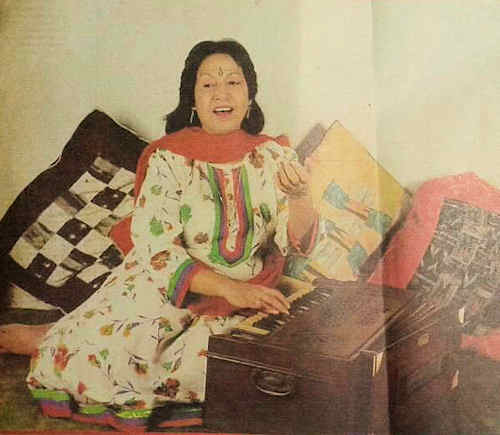
“Most of my hit tunes,” says Usha, “are picked up by producers at the very first hearing. Still one point, I never compose blankly, I need the right lyric to come up with the right tune for the situation. So when I compose a song, I’m already aware of the mood of the scene. I find that tunes come naturally to me. I have this habit of sitting down to compose, not in the morning like most, only in the evening. Dusk inspires me, I seem to create better late in the evening rather than early in the morning. The afternoon is no good at all! But I’m thinking of music all through the day.”
Usha Khanna has seen it all, heard it all, in her 33 years in films. One really fails to follow how this versatile composer failed to make the big time after creating such airs as O megha re bole ghanana ghanana (Rafi & Chorus: Dil Dkeke Dekho), Apne liye jiye to kya jiye (Manna Dey: Baadal,1966), Madhuban Khushboo deta hai (Rafi-Anuradha tandem: Saajan Bina Suhagan,1978), Tu is tarah sai meri zindagi mein shaamil hai (Rafi: Aap To Aese Na The, 1980), Ek sunheri shaam thi bekhi bekhi zindagi (Lata: Aao Pyar Karien) and Nili Nili ghata (Asha-Mukesh: Hum Hindustani)
Usha Khanna says she would have loved to work with moviemakers like Raj Kapoor, Guru Dutt, Raj Khosla and Vijay Anand – if only to find out how she measured up to their intricate demands. Unlike some of her ilk, Usha Khanna has never grudged her assistants their chance to make it big. “Almost all my assistants proved themselves when they turned composers,” says Usha Khanna. “Laxmikant Pyarelal were my arrangers. Arun Paudwal too was there as my arranger. Mahesh-Kishore got their big composing break when they were still with me. Hansraj-Kamal and Shyam-Surinder, too, have assisted me. Why, even Sonik-Omi worked with me. Sonik is a stalwart, of course, I say this only to drive home the point that this is a field in which they move on, your assistant of today can be the marquee name of tomorrow. For me, it’s a point of pride that so many of my assistants have made good as full-fledged music directors.”
Usha Khanna herself may have never scaled the peaks, but today she takes things as they come. “You may think I have slowed down,” she says, “but I feel comfortable with my current workload. I have never been too ambitious. I have always had a laidback style of functioning. As I look back, I feel I can say I have lasted well in a male-dominated field. I may not stand on the rooftops to proclaim it, but I have managed, in this insecure field, to work on my humble terms, with my pride and self-respect intact.”
Without doubt Usha Khanna has been a baton-wielder for woman power. She had no easy task, following in the composing footsteps of Bombay Talkies Saraswati Devi. Usha Khanna has stayed the course. And stayed it well. Usha Khanna, in fact, is a baton that is a pointer to how much a woman can accomplish in the sweetest of tones in a man’s film world.
Cinemaazi thanks Sudarshan Talwar for contributing this old interview conducted by Girija Rajendran.
The young image of Usha Khanna is from Cinemaazi archive and was not part of the original article.



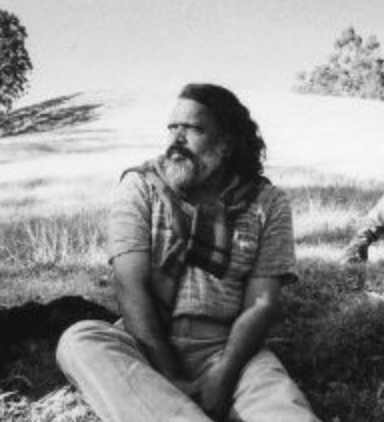
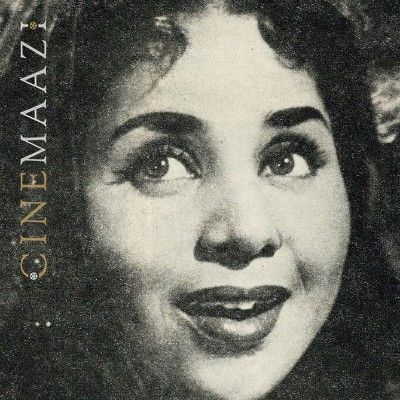

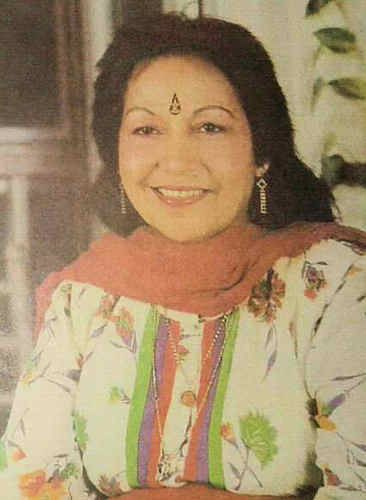
.jpg)


